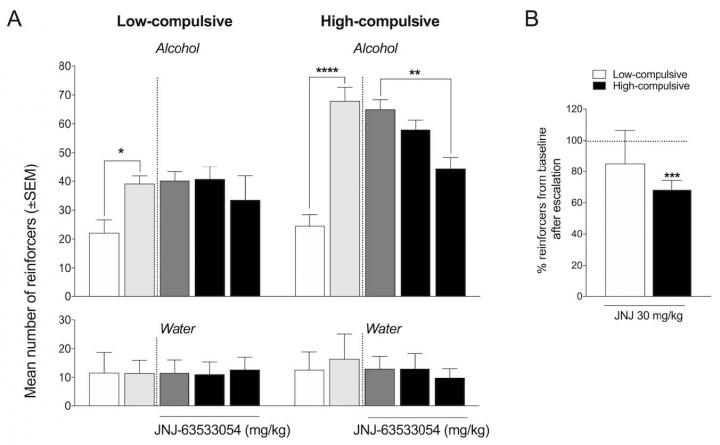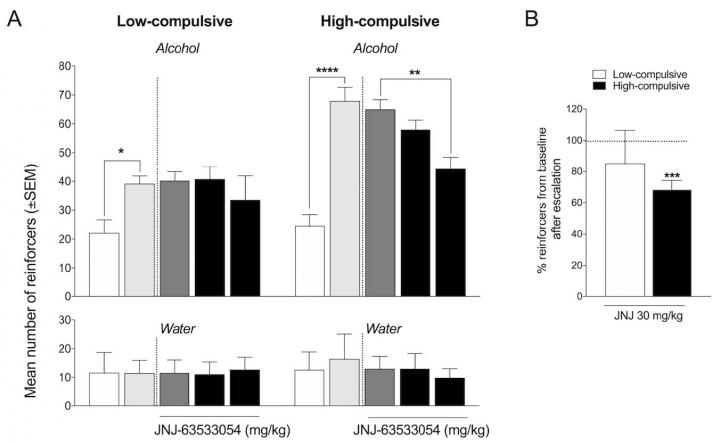
Credit: Kononoff et al., eNeuro (2018)
Activation of a receptor with no known function in the brain reduces excessive alcohol use and the pain of withdrawal, according to preclinical research in male rats. The study, published in eNeuro, suggests a new approach towards the treatment of alcohol use disorder.
More than a third of approved pharmaceutical drugs target G protein-coupled receptors (GPCRs). One receptor belonging to this family, GPR139, is highly expressed in the habenula — a brain region with a critical role in addiction.
Olivier George and colleagues used a rat model of alcohol dependence and a substance that activates GPR139 to establish a previously unknown role for the receptor in addiction-like behavior. The researchers found that activation of GPR139 reduced alcohol intake and restored pain sensitivity thresholds only in alcohol-dependent mice that showed compulsive-like alcohol consumption akin to problematic drinking in humans. This study is the first to establish an effect of GPR139 manipulation on behavior and encourages investigation of the receptor as a potential drug target in the development of medications for alcohol dependence.
###
Article: Systemic and intra-habenular activation of the orphan G protein-coupled receptor GPR139 decreases compulsive-like alcohol drinking and hyperalgesia in alcohol-dependent rats
DOI: https://doi.org/10.1523/ENEURO.0153-18.2018
Corresponding author: Olivier George (The Scripps Research Institute, La Jolla, CA, USA), [email protected]
About eNeuro
eNeuro, the Society for Neuroscience's open-access journal launched in 2014, publishes rigorous neuroscience research with double-blind peer review that masks the identity of both the authors and reviewers, minimizing the potential for implicit biases. eNeuro is distinguished by a broader scope and balanced perspective achieved by publishing negative results, failure to replicate or replication studies. New research, computational neuroscience, theories and methods are also published.
About The Society for Neuroscience
The Society for Neuroscience is the world's largest organization of scientists and physicians devoted to understanding the brain and nervous system. The nonprofit organization, founded in 1969, now has nearly 37,000 members in more than 90 countries and over 130 chapters worldwide.
Media Contact
David Barnstone
[email protected]
202-962-4000
@SfNJournals
http://www.sfn.org
Related Journal Article
http://dx.doi.org/10.1523/ENEURO.0153-18.2018





